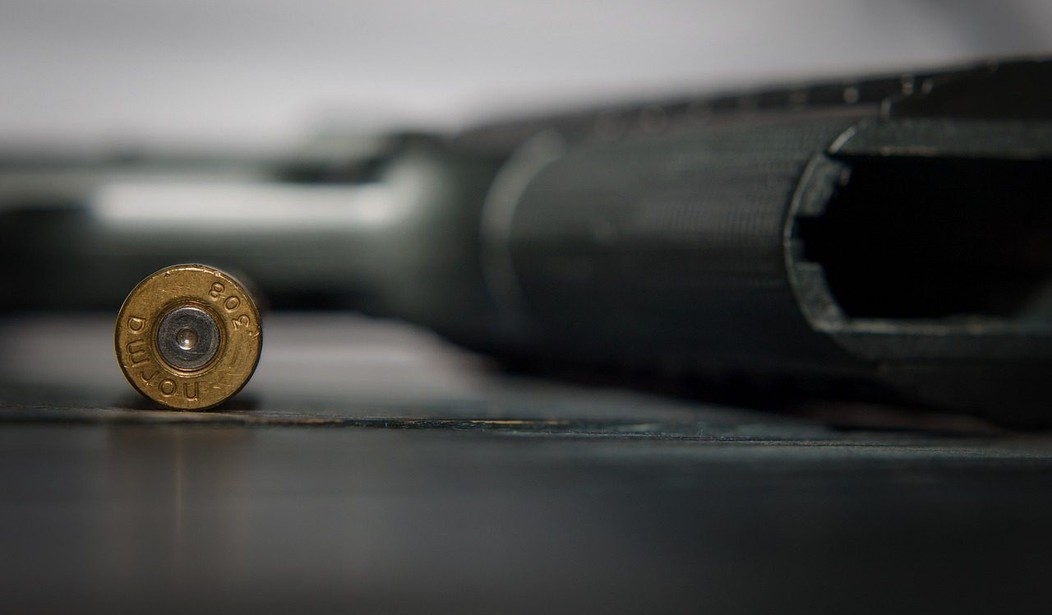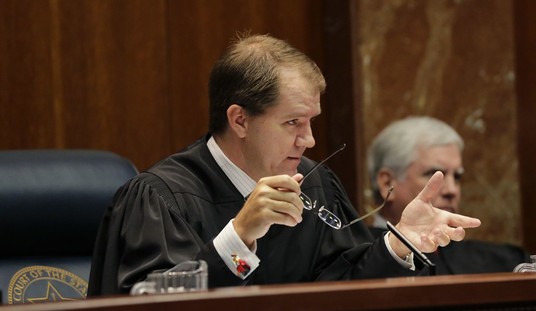Almost 17 years ago, Melynda Vincent wrote a bad check for almost $500 at a grocery store, but though she was only sentenced to probation after pleading guilty to check fraud she's still paying a heavy price for her actions: the loss of her right to keep and bear arms.
Because Vincent could have been sentenced to 30 years in prison, federal law bars her from legally possessing a firearm even though she was spared incarceration. Vincent has turned her life around in the years since her guilty plea, and is now a social worker in Utah who helps others with addiction through her own practice and her work with the Utah Harm Reduction Coalition.
Though there's no evidence whatsoever that Vincent is a dangerous person, the Tenth Circuit Court of Appeals has once again denied Vincent's request to have her gun rights restored. In 2023, the appellate court upheld a lower court decision prohibiting Vincent from exercising her Second Amendment rights, but the Supreme Court granted cert to her case, vacated the Tenth Circuit's decision, and remanded the case back to the appellate court for a do-over after issuing its decision in Rahimi.
In a ruling on Tuesday, a three-judge panel on the appellate court concluded for a second time that nothing in the Supreme Court's Second Amendment jurisprudence opens the door for her or other non-violent felons to lawfully possess a gun.
"Though Bruen created a new test for determining the scope of the Second Amendment, the court didn’t appear to question the constitutionality of longstanding prohibitions on possession of firearms by convicted felons,” wrote Circuit Judge Robert Bacharach in a 10-page opinion.
In addition to Bruen seeming to support criminal background checks for gun purchases, six of the nine Supreme Court justices specifically wrote in their opinions that the finding was not meant to cast doubt on the 2008 Heller case.
During oral arguments in May, the 10th Circuit panel also balked at the notion that Bruen suddenly reversed precedent set by the 2009 case U.S. v. McCane.
Senior U.S. Circuit Judge Paul Joseph Kelly, appointed by George W.H. Bush, and Circuit Judge Joel Carson, appointed by Donald Trump, joined Obama-appointed Bacharach in the majority opinion.
But Bacharach had more to say. In a six-page concurring opinion, Bacharach opined on the meaning of “the people” protected by the U.S. Constitution. The Second Amendment specifies that “a well-regulated militia, being necessary to the security of a free state, the right of the people to keep and bear arms, shall not be infringed.”
Bacharach pondered whether “the term the people include individuals convicted of nonviolent felonies."
Other courts, including the Third Circuit, have concluded that at least some non-violent felons are still part of the people who possess the right to keep and bear arms. In Range v. Garland, the Third Circuit declared that prohibiting Bryan Range fro owning a gun because of his conviction for falsifying his income on a food stamp application in the 1990s was a violation of his Second Amendment rights. As the court opined:
In sum, we reject the Government’s contention that only “law-abiding, responsible citizens” are counted among “the people” protected by the Second Amendment. Heller and its progeny lead us to conclude that Bryan Range remains among “the people” despite his 1995 false statement conviction.
... Because Range and his proposed conduct are protected by the Second Amendment, we now ask whether the Government can strip him of his right to keep and bear arms. To answer that question, we must determine whether the Government has justified applying § 922(g)(1) to Range “by demonstrating that it is consistent with the Nation’s historical tradition of firearm regulation.” We hold that the Government has not carried its burden.
The Third Circuit acknowledged that in Heller the Supreme Court said that, "nothing in our opinion should be taken to cast doubt on longstanding prohibitions on the possession of firearms by felons", but concluded that the Bruen decision still requires the government to justify gun control laws as consistent with the text of the Second Amendment and the national tradition of firearms ownership. The Third Circuit noted that the first iteration of the Federal Firearms Act, passed back in 1938, only applied to violent felons. The law was expanded to include non-violent felons and some misdemeanants in 1961, but as the court concluded:
Even if the 1938 Act were “longstanding” enough to warrant Heller’s assurance—a dubious proposition given the Bruen Court’s emphasis on Founding-and Reconstruction-era sources, Range would not have been a prohibited person under that law. Whatever timeframe the Supreme Court might establish in a future case, we are confident that a law passed in 1961—some 170 years after the Second Amendment’s ratification and nearly a century after the Fourteenth Amendment’s ratification—falls well short of “longstanding” for purposes of demarcating the scope of a constitutional right. So the 1961 iteration of § 922(g)(1) does not satisfy the Government’s burden.
The Third Circuit also rejected the government's earlier "evidence" in support of prohibiting non-violent felons from possessing firearms, which chiefly came in the form of colonial, 18th, and 19th statutes barring certain groups of disfavored people from possessing or carrying arms.
Apart from the fact that those restrictions based on race and religion now would be unconstitutional under the First and Fourteenth Amendments, the Government does not successfully analogize those groups to Range and his individual circumstances. That Founding-era governments disarmed groups they distrusted like Loyalists, Native Americans,Quakers, Catholics, and Blacks does nothing to prove that Range is part of a similar group today. And any such analogy would be “far too broad[ ].”
In contrast to the Third Circuit's close examination of the historical record and its careful reading of the Supreme Court's decisions in Heller, Bruen, and Rahimi, the Tenth Circuit panel that declared Melynda Vincent lost her Second Amendment rights when she pleaded guilty to writing a bad check based their decision largely on pre-Bruen (and pre-Rahimi) precedent within the appellate court.
The only good news is that with the developing split in the circuit courts, the Supreme Court is likely to address the issue of prohibiting non-violent felons from possessing a firearm in the near future. If not Range v. Garland, Vincent's case would be another excellent vehicle for the Court to flesh out its holding in Rahimi that individuals found by a court "to pose a credible threat to the physical safety of another... may be temporarily disarmed consistent with the Second Amendment." The Supreme Court's language at least suggests that those who do not pose a credible threat to the physical safety of another can't be disarmed consistent with the Second Amendment, but SCOTUS needs to make that explicitly clear if folks like Bryan Range and Melynda Vincent have any hope of regaining their right to keep and bear arms.









